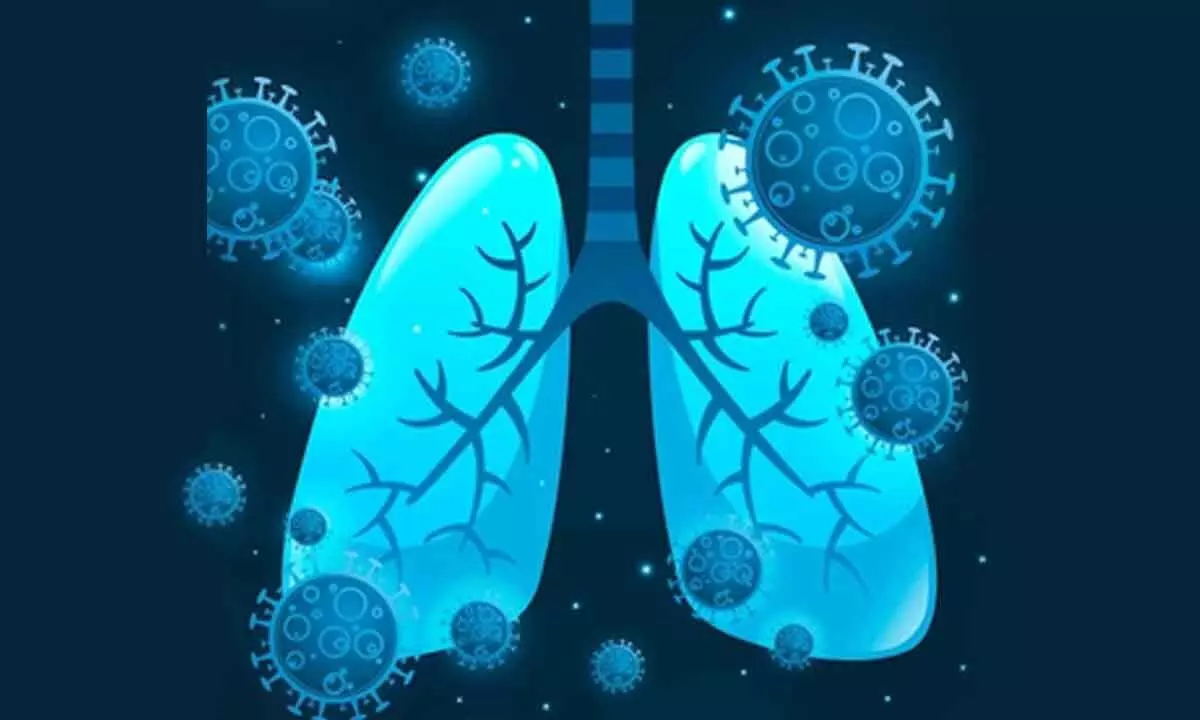Covid virus can persist in lungs for up to 2 years: Study
Share :

SARS-CoV-2, the virus causing Covid-19, can last in the lungs of certain individuals for up to 18 months after infection, finds a study.
SARS-CoV-2, the virus causing Covid-19, can last in the lungs of certain individuals for up to 18 months after infection, finds a study.
The study, published in the journal Nature Immunology, showed that Covid virus’ persistence appears to be linked to a failure of innate immunity (the first line of defence against pathogens).
One to two weeks after contracting Covid, the SARS-CoV-2 virus generally becomes undetectable in the upper respiratory tract.
But, some viruses persist in the body in a discreet and undetectable manner after causing an infection. They remain in what are known as ‘viral reservoirs’, even though it remains undetectable in the upper respiratory tract or blood.
This is the case for HIV, which remains latent in certain immune cells and can reactivate at any time. It could also be the case for the SARS-CoV-2 virus which causes Covid-19, said the team from the Institut Pasteur, who first hypothesised the theory in 2021, and now confirmed it in a preclinical model of a non-human primate.
"We observed that inflammation persisted for long periods in primates that had been infected by SARS-CoV-2. We therefore suspected that it could be due to the presence of the virus in the body," explains Michaela Muller-Trutwin, Head of the Institut Pasteur's HIV, Inflammation and Persistence Unit.
To study the persistence of the SARS-CoV-2 virus, the scientists analysed biological samples from animal models that had been infected by the virus.
They found that the amount of persistent virus in the lungs was lower for the Omicron strain than for the original SARS-CoV-2 strain.
"We were really surprised to find viruses in certain immune cells -- alveolar macrophages -- after such a long period and when regular PCR tests were negative," said Nicolas Huot, researcher in the Institut Pasteur's HIV, Inflammation and Persistence Unit.
"What's more, we cultured these viruses and were able to observe, using the tools we developed to study HIV, that they were still capable of replicating."
To understand the role of innate immunity in controlling these viral reservoirs, the scientists then turned their attention to NK (natural killer) cells.
"The cellular response of innate immunity, which is the body's first line of defence, has been little studied in SARS-CoV-2 infections until now," said Muller-Trutwin.
"Yet it has long been known that NK cells play an important role in controlling viral infections."
The study shows that in some animals, macrophages infected with SARS-CoV-2 become resistant to destruction by NK cells. While in others, NK cells are able to adapt to infection (known as adaptive NK cells) and destroy resistant cells, in this case macrophages.
Innate immunity therefore appears to play a role in the control of persistent SARS-CoV-2 viruses, the team said



